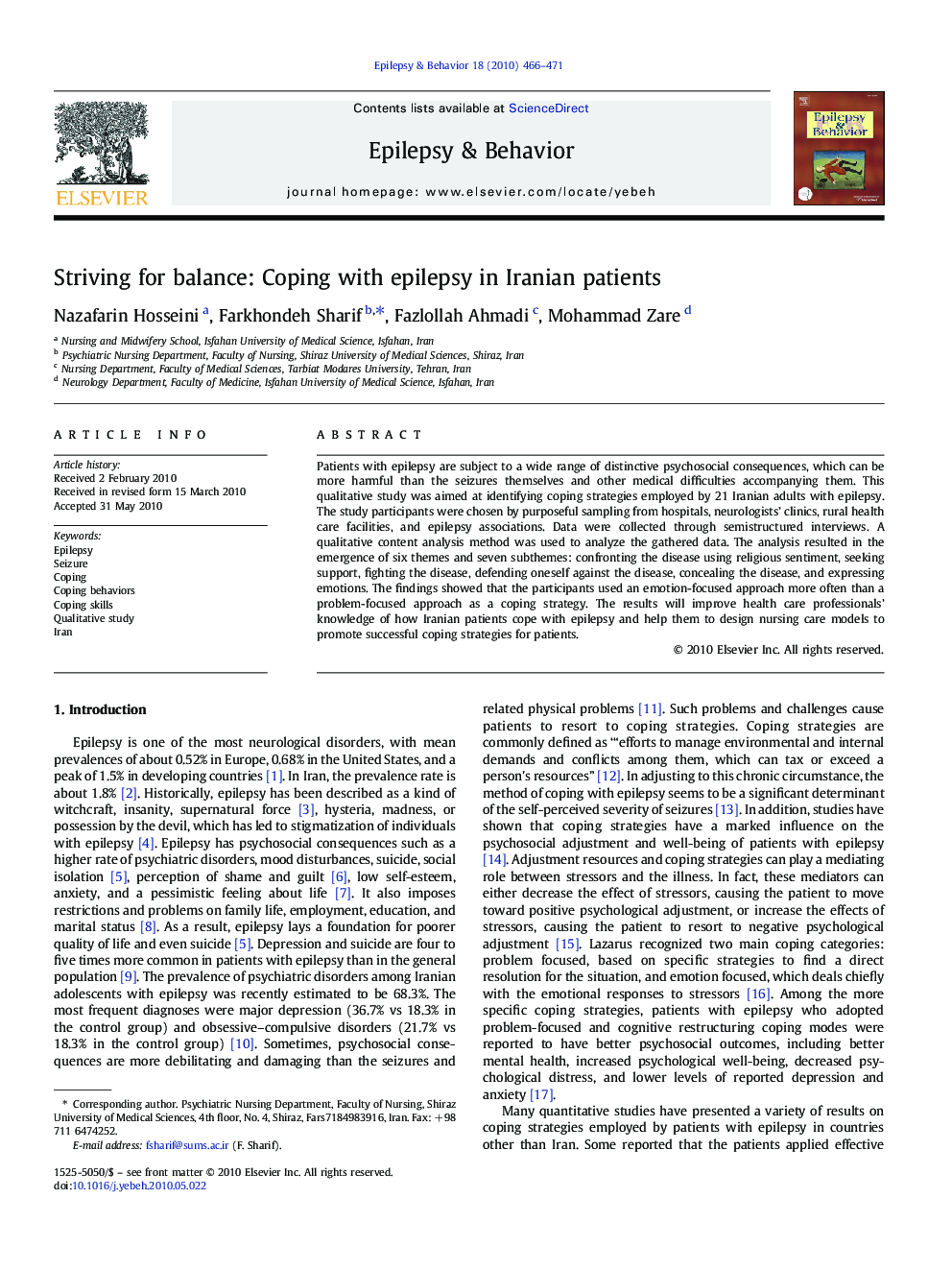| Article ID | Journal | Published Year | Pages | File Type |
|---|---|---|---|---|
| 3050212 | Epilepsy & Behavior | 2010 | 6 Pages |
Patients with epilepsy are subject to a wide range of distinctive psychosocial consequences, which can be more harmful than the seizures themselves and other medical difficulties accompanying them. This qualitative study was aimed at identifying coping strategies employed by 21 Iranian adults with epilepsy. The study participants were chosen by purposeful sampling from hospitals, neurologists’ clinics, rural health care facilities, and epilepsy associations. Data were collected through semistructured interviews. A qualitative content analysis method was used to analyze the gathered data. The analysis resulted in the emergence of six themes and seven subthemes: confronting the disease using religious sentiment, seeking support, fighting the disease, defending oneself against the disease, concealing the disease, and expressing emotions. The findings showed that the participants used an emotion-focused approach more often than a problem-focused approach as a coping strategy. The results will improve health care professionals’ knowledge of how Iranian patients cope with epilepsy and help them to design nursing care models to promote successful coping strategies for patients.
